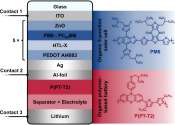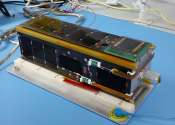Monolithically integrated photo battery achieves competitive voltage
Networked intelligent devices and sensors can improve the energy efficiency of consumer products and buildings by monitoring their consumption in real time. Miniature devices like these being developed under the concept of ...
Nov 3, 2023
0
61









